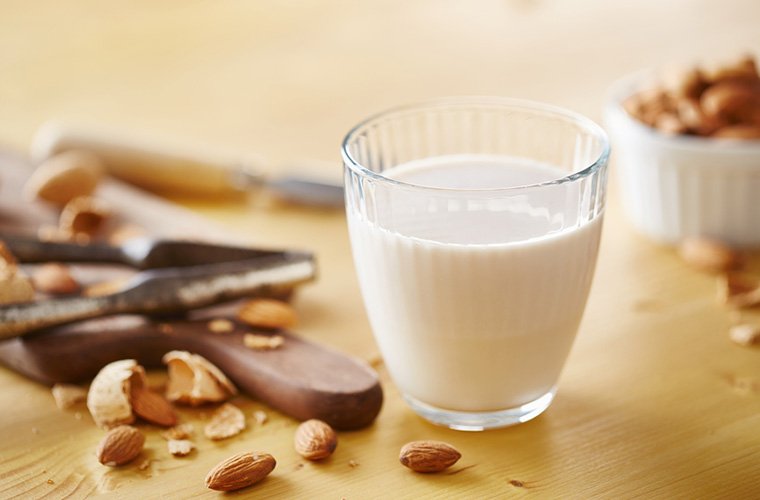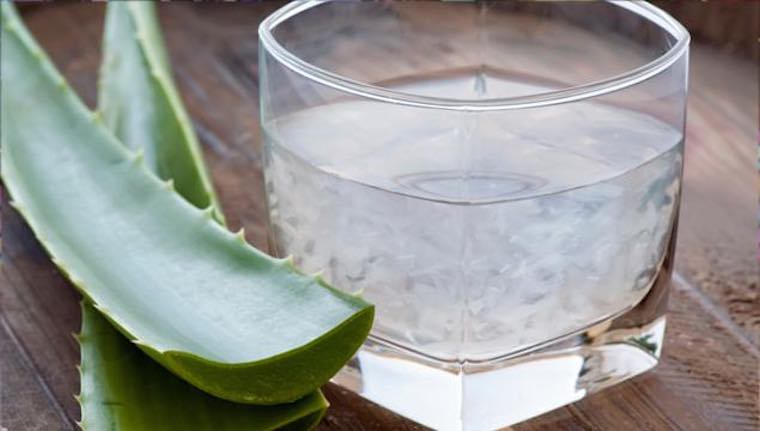5 No-Fear Foods to Eat When IBS Is Taking Over Your Life
If you're part of the one in five Americans with irritable bowel syndrome (yes, it's that common), you're all too familiar with the fear that can creep up before sitting down to a meal. Every food is a possible grenade that could explode in your stomach. (It's a gross metaphor, but it's unfortunately a pretty apt one.)
"First, it's important to get rid of that fear of eating, because anxiety affects the gut. You have to be able to relax," says Dr. Vincent Pedre, MD, the author of Happy Gut. The second piece of advice he gives his patients with IBS is to weed out the foods that are the most problematic: gluten, dairy, soy, corn, and legumes. And oh yeah, you'll want to limit your sugar intake, too.
"It's best to take the load off your gut completely, and then re-introduce each of these foods slowly, one at a time," Dr. Pedre says. "That way, you'll have a blank slate and stronger gut, which can help you really determine what your problem foods are."
"First, it's important to get rid of that fear of eating, because anxiety affects the gut. You have to be able to relax."
While the rewards will likely pay off, avoiding all those possible triggers isn't easy. It's totally normal to wonder, Sheesh, what can I eat?
Fortunately, Dr. Pedre flagged some foods that are not only still on the table, but actually help ease IBS symptoms. And his knowledge comes firsthand: After suffering from IBS for years, he found a way to heal himself with food. Ditto for Jeff Burgee, the founder of IBS Formula. "I spent years visiting the best doctors in the country and tried everything," Burgee says. "When none of them could help me, I started experimenting with different ingredients on my own."

{{post.sponsorText}}
Curious about what you have in your fridge that can help with IBS? Keep reading.

Fermented foods
This one shouldn't come as a total shocker—you probably already know fermented foods are packed with probiotics, which are crazy-good for your gut. "One of probiotics' most important functions is their ability to outnumber and antagonize unwelcome pathogens in the GI tract," says Dr. Pedre. In other words, they boost more of the good bacteria while fighting off the bad kind, helping bring your gut back to balance. (And FYI, our expert prefers fermented foods over the probiotic fave kombucha. "It can have too much sugar, which feeds yeast in the gut—not good," he explains.)
There is one time, however, when Dr. Pedre warns against filling up on fermented foods: If you have SIBO, an overgrowth of bad bacteria in the small intestine. "Then, it can actually be uncomfortable for people to eat them," he says.

Almond milk
Dairy is not kind to people with IBS, but that doesn't mean a life without smoothies, lattes, and ice cream. Almond milk is Dr. Pedre's go-to milk replacement because it's widely available, affordable, and easy on the gut—but other nut milks are also kind to your body. Just make sure to reach for the unsweetened kind to avoid extra sugar, which could feed the aforementioned pesky yeast-overgrowth problem.

Bone broth
According to Dr. Pedre, there are a couple reasons why bone broth is a great food for people with IBS: One, it's already in liquid form, so your stomach doesn't have to go through all the work of breaking it down. Two, it's an excellent source of collagen. It turns out, collagen can smooth your gut lining from the inside out the same way it does wrinkles in your skin. (Dr. Pedre adds a half-cup of lemon or apple cider vinegar to his recipe to up the gut-healing properties even more.) Plus, it can be incredibly soothing after experiencing IBS from spicy foods.

Acai
When Burgee, the IBS Formula founder, heard about a scientific study linking the buzzy superfood acai berries to IBS treatments, he decided to give it a shot. "I started taking it and didn't have any IBS symptoms for a week, which was amazing for me," he says. It was the first ingredient he experimented with to have a lasting result—years later, it's still working for him. "They are super high in antioxidants, which have been found to really help with IBS," he says.

Aloe vera
Aloe vera is known to (ahem) help move things along, which is great news if constipation is your biggest IBS symptom. But while some studies have found the ingredient helps if you're backed up but not if you have diarrhea, Burgee believes it works for (some) people on both sides of the IBS spectrum. "It's almost entirely water and soluble fiber," he says. (Insider IBS tip: soluble fiber helps bulk up stool.)
Dr. Pedre's advice for testing anything new you're nervous to try is to start small. "It's like going to the pool. You don't have to just dive in—you can dip your toe in first." If you try a shot of aloe vera and don't experience any gassiness or bloating, next time you can try a bit more and see how you feel.
Treating IBS is tricky business: There's no one-size-fits-all rule when it comes to gut health. But if you give your stomach a rest by weeding out any problem foods while filling up on the five items on this list, you just might be able to spend less break time in the bathroom.
Something else that will help your IBS symptoms: Getting more vitamin D. Or, you could have leaky gut.
Loading More Posts...